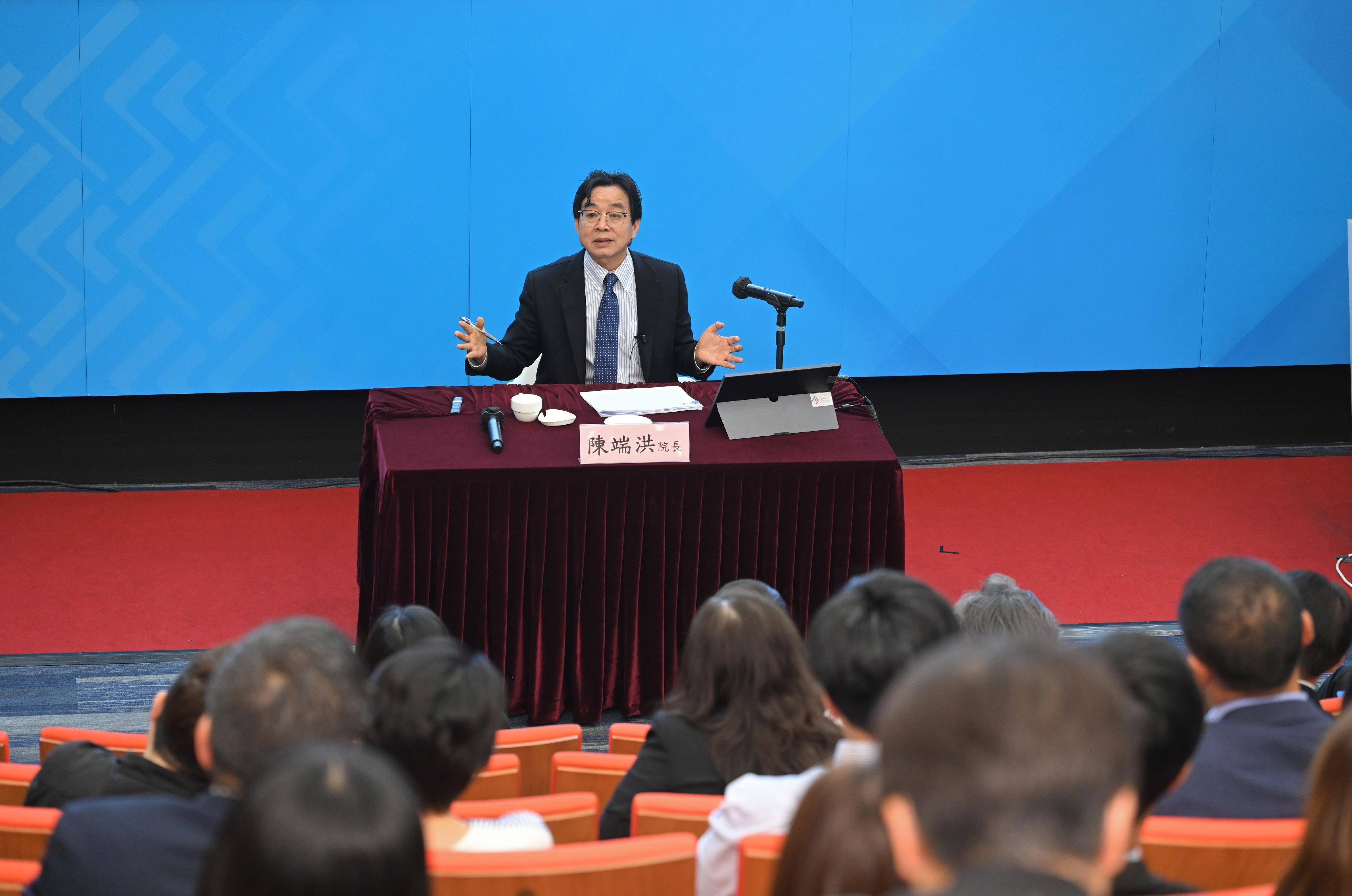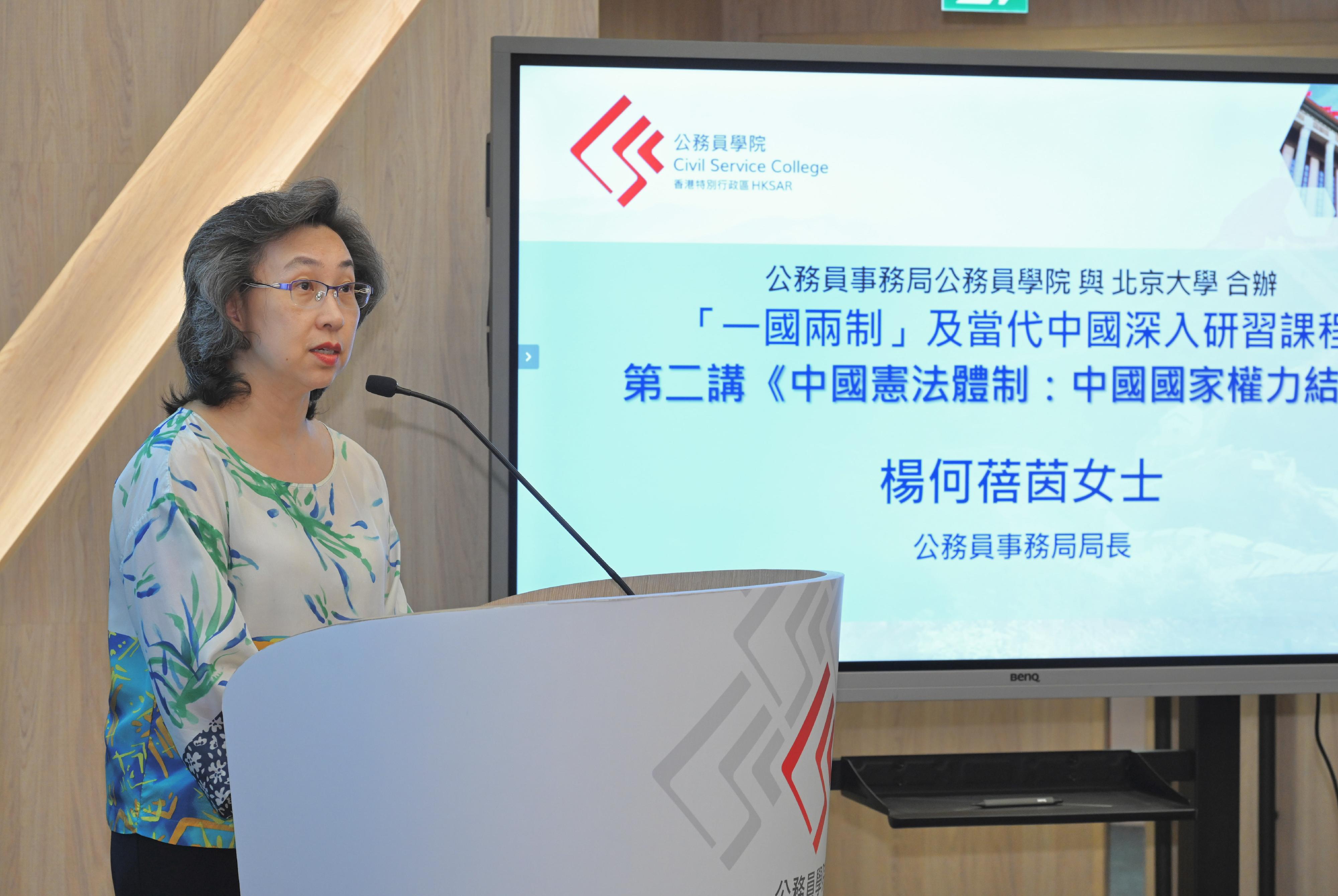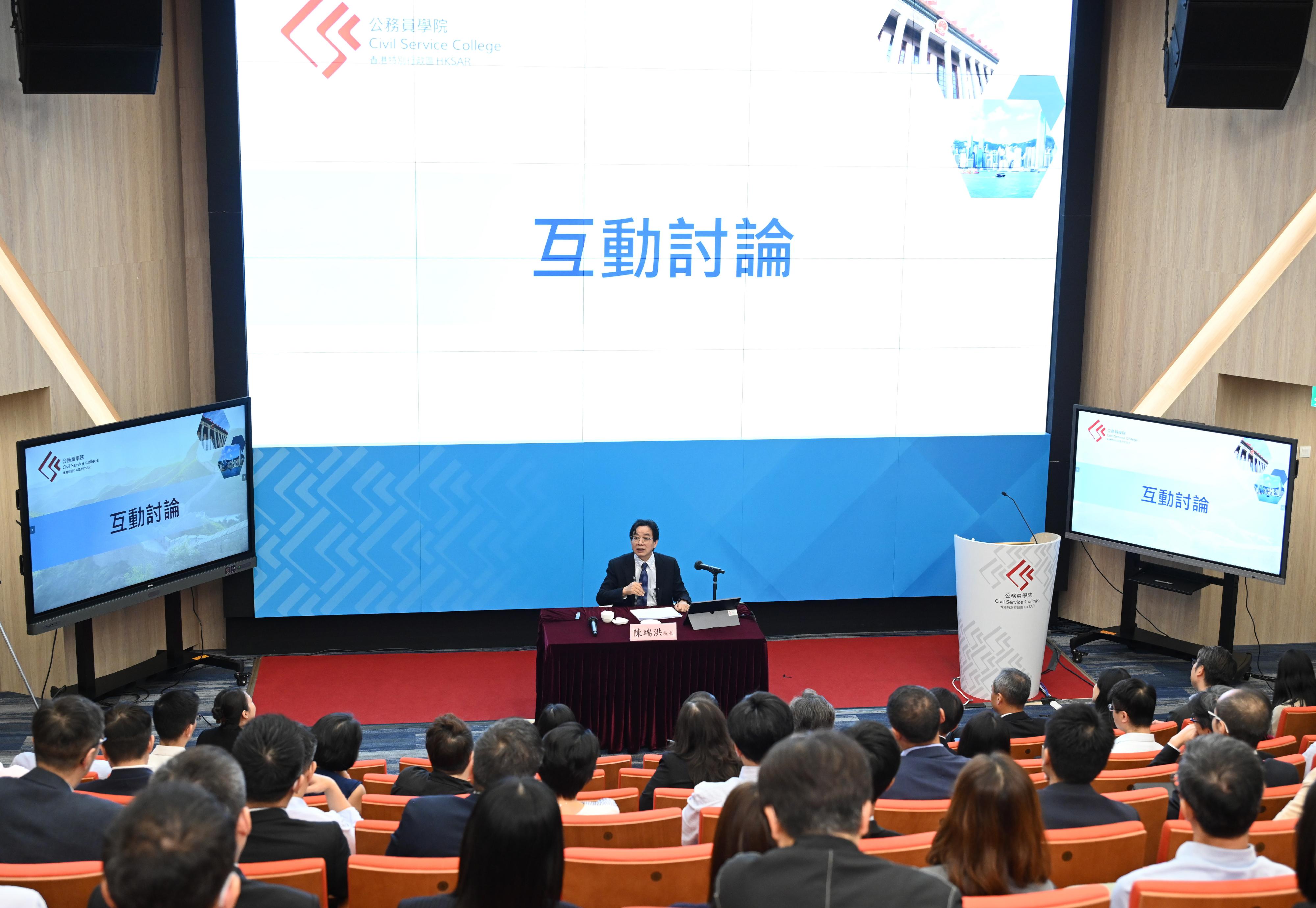Civil Service College and Peking University's joint programme holds lecture on Chinese Constitutional System (with photos)
******************************************************************************************
In addressing the lecture, the Secretary for the Civil Service, Mrs Ingrid Yeung, said the Constitution of the People's Republic of China has established the path of socialism with Chinese characteristics and the national system. The Constitution has effectively safeguarded national unity, ethnic solidarity and social stability, and promoted socio-economic development and modernisation. In order to be familiar with the country, the civil service must have a correct understanding of the Constitution and the national system it set out. They must also accurately comprehend and safeguard the constitutional order of the Hong Kong Special Administrative Region established under the Constitution and the Basic Law. Senior civil servants should seize the opportunity to learn the Constitution of the country, so as to fully, faithfully and resolutely implement the principle of "one country, two systems".
Around 70 civil servants at the rank of Directorate Pay Scale Point 1 and 2 attended the in-depth programme. In addition, about 100 politically appointed officials and other directorate officers enrolled and sat in the programme via video conferencing.
The programme was organised to further strengthen training for senior officials and directorate civil servants. It consists of 12 monthly lectures in two parts: "one country, two systems" and the contemporary China. It covers a wide range of topics, such as the Communist Party of China and the contemporary China, socialism with Chinese characteristics, the theory and practice of "one country, two systems", as well as developments in contemporary Chinese society, economy, national defence, technology, and more. Distinguished scholars from the Mainland will deliver the programme and engage in in-depth discussions with participants.
Ends/Tuesday, August 22, 2023
Issued at HKT 18:46
Issued at HKT 18:46
NNNN







